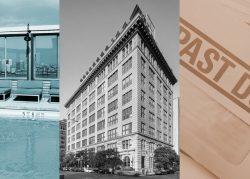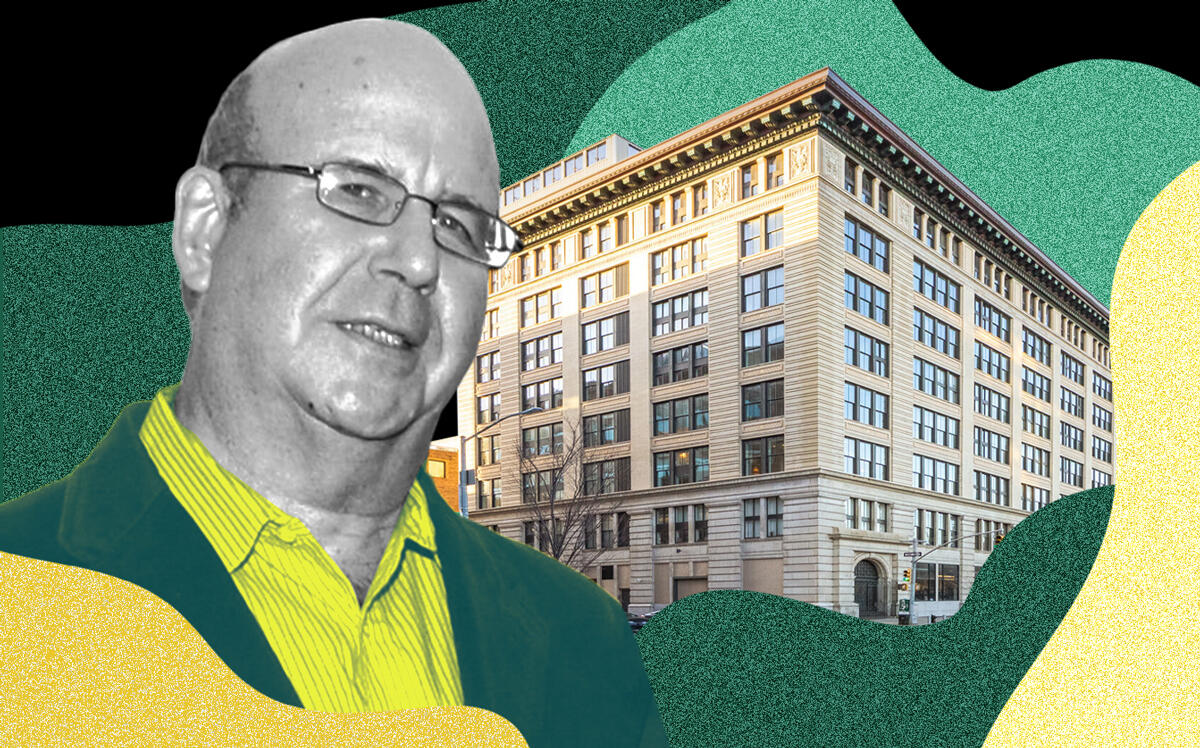 Printing House condo board sues commercial owner for unpaid common charges
Printing House condo board sues commercial owner for unpaid common charges
Trending
Creditors want Printing House condos from bankrupt Barnet Liberman
Lawsuit seeks to claw back luxury units transferred to wife, children

A trio of West Village condo units that developer Barnet Liberman gave his wife and children are in the crosshairs of creditors to his bankrupt estate.
The trustee of Liberman’s bankruptcy filed a complaint Tuesday against Phyllis Liberman, the couple’s five adult children and a trio of entities connected to the family, attempting to recover three units at 421 Hudson Street.
The lawsuit alleges Liberman fraudulently transferred the apartments, in a stately condo known as Printing House, to shield them from creditors. He is the principal of Mountbatten, the company which converted the building to a residential and commercial condominium in the 1970s.
Reached by phone, Liberman denied the allegations on behalf of his wife and children, accusing Pergament of “throwing pasta up against the wall and seeing what will stick.”
“They’re wrong,” Liberman said. “It’s a fairy tale, but I’ve got to face it for the honor of my family.”
Liberman filed for Chapter 11 bankruptcy in New York in April 2021, reportedly owing $123 million. Two months later the case was converted to Chapter 7. Chapter 11 allows a business to reorganize; Chapter 7 liquidates its assets.
The suit also names attorney Gary Rosenberg, Axos Bank, the IRS, the New York state Department of Taxation and Finance and the Printing House’s board of managers, all of whom have liens on the disputed units.
Rosenberg, who is identified as a close friend of Liberman, is accused of “inequitable conduct” and trying to gain an unfair advantage over Liberman’s other debtors because Rosenberg allegedly knew that Liberman was in financial distress.
“If anything, I could turn out to be the victim here,” Rosenberg said. “It’s gonna be a lot of going around in circles, in my opinion, for ultimately no reason.”
Barnet and Phyllis Liberman purchased the apartments in 2003. Amid a 2007 Nevada bankruptcy case, the Libermans formed Hudson 805 LLC and transferred the units to the entity, according to the complaint. The Libermans also formed five trusts, all managed by Liberman’s wife, for each of their adult children and the Liberman Group at around the same time.
The Libermans transferred 75 percent of their stake in Hudson 805 to the five trusts in 2014, with each trust gaining a 15 percent non-managing share in the entity and the parents holding onto a 25 percent managing interest, according to the complaint. The couple paid gift taxes to move the assets.
The 2014 gift tax returns valued the condo units at roughly $11 million, with about $4.4 million in liabilities. Each of the trusts’ stakes were valued at about $594,000, about 40 percent less than the market value of $990,000, the suit alleges.
Read more
 Printing House condo board sues commercial owner for unpaid common charges
Printing House condo board sues commercial owner for unpaid common charges
 Suit says Barnet Liberman not paying his condo fees at Printing House
Suit says Barnet Liberman not paying his condo fees at Printing House
 New rift in Kalimian family’s escalating legal saga
New rift in Kalimian family’s escalating legal saga
Ownership of Hudson 805 was then transferred in 2019 to an entity called TLG Hudson. The new entity has the same ownership structure as the previous one.
Liberman also transferred half of his ownership in the Liberman Group to his wife in 2015. Once again, both Barnet and Phyllis Liberman gifted 75 percent of their stake in the entity to the five trusts, with each trust gaining a 15 percent non-managing share in the entity and the parents holding onto a 25 percent managing interest.
One year later, Liberman transferred all of his interest in a number of entities he shared with his wife to the Liberman Group. The 2016 gift tax returns valued Liberman’s interest at about $6.9 million, according to the lawsuit.
Liberman’s ownership transfers “diminished the assets of the debtor’s bankruptcy estate,” according to bankruptcy trustee Marc Pergament. The trustee claimed that unsecured creditors hold an interest in the condo units because they are property to Liberman’s estate and that Liberman’s wife and children have no right to the transfers.
Pergament also accused Liberman of making the ownership transfers to “hinder, delay or defraud” the creditors. Liberman knew or should have known that the transfers would have left him unable to pay his debts, Pergament claimed.
The bankruptcy trustee also claimed that Liberman’s use of Hudson 805 was to shield ownership of the condo units from creditors in an effort to hide his assets amid a pending action from the Nevada bankruptcy case. Despite the ownership transfers, the Libermans still controlled the units without paying rent, Pergament alleged.
Pergament wants the court to order the Libermans to hand over the three disputed condo units and to rule the ownership transfers “fraudulent” so he can recover and sell the assets.
The trustee also asked the court to award the creditors with money damages if the transfers cannot be recovered and to suspend any claims by Liberman’s wife or children to the estate.
Pergament also asked the court to either cancel Rosenberg’s mortgage on the property or demote him from a secured to an unsecured creditor, thus giving the bankruptcy estate an equal chance at the disputed condo units.
Rosenberg filed a claim last year of more than $2.9 million on the condo units, but the trustee accused him of handing out loans to Liberman over a 10-year period despite knowing that Liberman could not pay him back. Rosenberg most recently gave Liberman a loan in 2019, but Liberman hasn’t paid him anything since 2015, according to the complaint.
Pergament alleged that Rosenberg never asked Liberman to provide him with any security on the loan. The trustee also accused Rosenberg of having Hudson 805 make out a promissory note to repay the debt, despite the loan being given to Liberman and Liberman not being able to make good on his payments. The note was secured by the mortgage on the condo units and Liberman personally guaranteed the loan, according to the complaint.
Rosenberg denied the allegations in the lawsuit, saying he did nothing wrong by giving out the loans to Liberman. He also criticized the trustee’s attempt to make him an unsecured creditor.
“[The creditors] have to show that when [Liberman] did this, he did this for the purpose of defrauding his creditors, and these are people who became predators,” Rosenberg said. “It’s hard for me to see what they think they’re going to try and prove.”
Neither Pergament nor an attorney representing him responded to requests for comment by press time.




